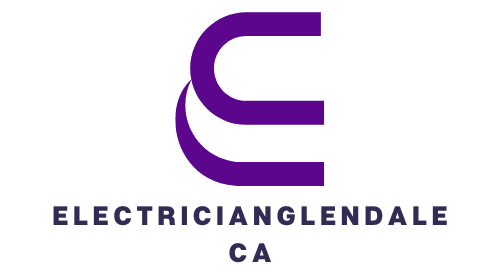How Can Blockchain Technology Enhance the Traceability of Sustainable Supply Chains?

Supply chains are complex systems with numerous moving parts, making it challenging to track, trace, and verify the origins of products and materials. This is where blockchain technology comes into play. Known for its decentralization, transparency, and immutability, blockchain can drastically enhance the traceability of supply chains. Let’s dive deep into understanding how this innovative technology can redefine the future of supply chain management.
The Advent of Blockchain in Supply Chain Management
In the realm of supply chain management, blockchain is a game-changer. It’s a revolutionary technology that promises to reshape the industry by enhancing transparency, reducing fraud, and improving efficiency. But what exactly is blockchain, and how can it be of help?
A découvrir également : What Are the Implications of IoT and AI in Customizing Retail Shopping Experiences?
Blockchain is a distributed ledger technology that records transactions across multiple computers in a way that the involved parties can monitor and verify all entries. They can’t alter or delete these entries, adding an unprecedented level of transparency and authenticity to the entire chain of transactions.
When applied to supply chains, blockchain can provide a real-time, digital ledger of transactions, events, and associated data along the entire value chain. From the sourcing of raw materials to the delivery of finished products to consumers, every single step can be recorded, traced, and verified. Consequently, the traceability of products becomes more transparent, accurate, and reliable.
A voir aussi : What’s the Future of Smart Eyewear with Integrated Augmented Reality?
The Role of Blockchain in Food Traceability
One industry that can benefit immensely from blockchain-based supply chain systems is the food industry. Given the increasing consumer demand for transparency about where our food comes from, blockchain can play a crucial role in achieving this goal.
Blockchain technology can record and verify every step in the food supply chain, from farm to fork. Planting, harvesting, processing, packaging, shipping, and selling – every stage can be recorded on the blockchain. This provides complete traceability of food products, allowing consumers to verify their origins, processing, and handling.
Moreover, in the event of a food safety issue, a blockchain-based system can help identify the source of contamination more quickly and accurately than traditional methods. This can significantly reduce the time taken to address the issue, thus minimizing risks to public health and business reputations.
Enhancing Transparency in Supply Chains with Blockchain
Transparency in supply chains is not just about meeting consumer demands, it’s also about ethical and sustainable business practices. This is another area where blockchain can make a significant impact.
With a blockchain-based supply chain system, companies can verify the authenticity of their products and ensure that they’re sourced and produced ethically. For instance, a clothing brand can use blockchain to track their products from cotton farms to garment factories, ensuring that no child labour or unfair practices were involved.
Such transparency can help businesses build trust and loyalty with their customers, partners, and stakeholders. It can also improve their competitiveness in the market, as consumers are increasingly choosing brands that are transparent and socially responsible.
Blockchain’s Impact on Efficiency and Speed of Supply Chains
Apart from enhancing transparency and traceability, blockchain can also improve the efficiency and speed of supply chains. Traditional supply chain processes are often slow, inefficient, and prone to errors, mainly due to manual data entry and lack of real-time information.
However, with blockchain, all transactions and data are digitized and updated in real-time across the entire network. This eliminates the need for manual data entry and verification, thus reducing errors and saving time. It also enables faster and more informed decision-making, as businesses have access to real-time information about their supply chains.
Blockchain-Based Supply Chains: A Case Study
To illustrate the potential of blockchain in enhancing supply chain traceability, let’s consider the case of De Beers, one of the world’s leading diamond companies. Diamonds, as you know, have a complex and sometimes controversial supply chain. De Beers, however, has successfully used blockchain to increase transparency in its diamond supply chain.
The company has developed a blockchain platform called Tracr, which tracks the journey of a diamond from the mine to the consumer. Each diamond gets a unique "digital fingerprint" on the blockchain, which records its carat, colour, clarity, and other attributes.
This not only assures consumers of the authenticity and ethical sourcing of their diamonds, but it also helps De Beers comply with regulations and maintain its reputation in the industry.
In summary, whether it’s food or diamonds, clothing or electronics, blockchain technology has the potential to revolutionize supply chain management by enhancing transparency, traceability, efficiency, and speed. And while there are still challenges to overcome, such as integration with existing systems and acceptance among users, the benefits of blockchain-based supply chains are too significant to ignore.
The Utilization of Smart Contracts in Blockchain Supply Chains
Harnessing the power of smart contracts is another way that blockchain technology can boost the traceability of sustainable supply chains. A smart contract is a self-executing contract with the terms of the agreement directly written into code. These contracts are stored and replicated on the system and supervised by the network of computers that run the blockchain.
Smart contracts play a pivotal role in achieving automation, which can drastically reduce costs and increase efficiency in supply chain management. For example, when a product reaches a specified location, a smart contract could automatically trigger a payment, or initiate another action like the release of a shipment. The use of smart contracts can also reduce the need for intermediaries, further cutting down the cost and time spent on transactions.
Additionally, smart contracts can enforce compliance among parties. For instance, they can be programmed to fulfill certain conditions, like ensuring that a supplier adheres to certain environmental or labor standards before a transaction can be completed. This not only enhances traceability but also encourages sustainably and ethically sourced products.
Smart contracts, therefore, can make supply chains more efficient, transparent, and traceable. They can ensure that all transactions are immutable and automatically enforceable, which brings a new level of trust and accountability to the business ecosystem.
How Machine Learning and Artificial Intelligence Complement Blockchain in Supply Chain Management
While blockchain is revolutionizing supply chain management on its own, when combined with other technologies such as machine learning and artificial intelligence, the potential benefits multiply. Machine learning and artificial intelligence can analyze large volumes of data to find patterns and make predictions, while blockchain can provide the secure, decentralized platform for storing and sharing this data.
Integrating machine learning with blockchain in supply chains can enhance forecasting accuracy, leading to optimized inventory management, reduced waste, and increased profitability. For instance, machine learning algorithms can predict demand trends based on historical sales data and other factors, and these forecasts can be securely stored and shared on the blockchain.
Artificial intelligence, on the other hand, can help automate complex tasks and decisions. For example, AI could automatically identify the most efficient shipping route based on real-time data, or detect anomalies in supply chain data that may indicate fraud or other issues.
Moreover, machine learning and artificial intelligence can also improve the traceability of supply chains. They can help businesses analyze and interpret the vast amount of data recorded on the blockchain, providing valuable insights into the origins and journey of products.
Conclusion
The future of supply chain management lies in the application of innovative technologies like blockchain, smart contracts, machine learning, and artificial intelligence. Blockchain technology, known for its decentralization, transparency, and immutability, is well-suited for enhancing the traceability of sustainable supply chains. It can provide a real-time, digital ledger of transactions, events, and associated data, making the traceability of products more transparent, accurate, and reliable.
Meanwhile, the integration of smart contracts can automate transactions and enforce compliance among parties, and the use of artificial intelligence and machine learning can provide valuable insights and improve decision-making.
Indeed, the benefits of adopting blockchain technology in supply chains – from enhancing transparency and traceability to improving efficiency and speed – are too significant to ignore. As illustrated in the De Beers case study, blockchain can assure consumers of the authenticity and ethical sourcing of products, thereby building trust and loyalty with customers.
While there may be challenges to surmount, such as integration with existing systems and acceptance among users, the potential of blockchain technology in revolutionizing supply chain management is undeniable. The future of supply chains is transparent, traceable, efficient, and sustainable, and blockchain technology is set to lead the way.
